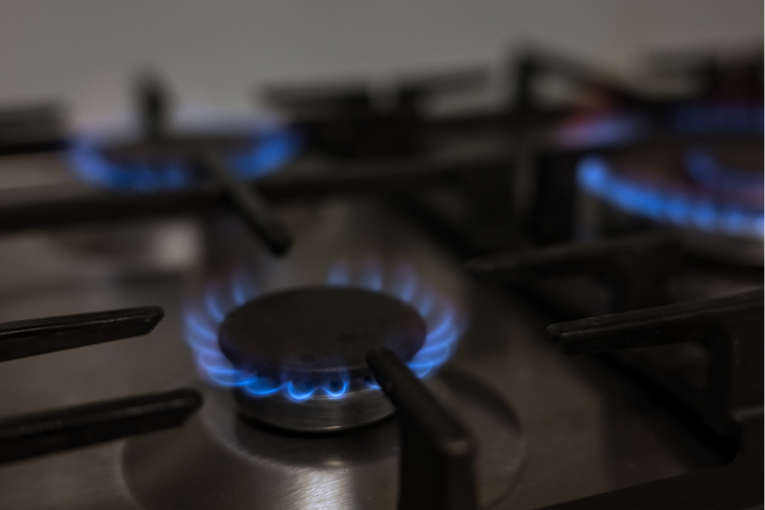Chaos and confusion: Victoria’s public housing coronavirus lockdown
Residents yelling for help from windows, friends turned away from dropping off care packages and masked police officers at the end of every corridor.
This is the scene for about 3000 residents trapped inside public housing towers brought under sudden lockdown in Melbourne.
On Sunday, Victorian Premier Daniel Andrews said at least 23 new coronavirus cases had been identified in nine Flemington and North Melbourne public housing estates.
At least 12 households are infected, but all tower residents have been banned from leaving their units.
They will be in shutdown for five days – at least.
Mr Andrews said “this is not about punishment – it’s about protection”.
But the tense atmosphere outside a public housing block in Flemington tells a different story.
There, residents said they feel more like they’re in jail.
On Sunday, cries for help could be heard coming from the flats at 12 Holland Court.
A sign plastered onto a fifth-floor window read: ‘Treat us as humans, not caged animals’.
Around 3pm, dozens of masked police officers were spotted turning away friends and family who had come to deliver care packages.
The officers wouldn’t allow the deliveries because of fear of possible contamination.

Moonee Ponds woman Matilda Shaw said the public housing lockdown was “an abuse of human rights”. Photo: TND
Intimidating police presence
Nasa Ige, president of the Australian African Association, said he knew about “90 per cent” of the residents at 12 Holland Court in Flemington.
Speaking to The New Daily outside the towers, Mr Ige said the situation was “absolutely horrible”.
“People are just mad about all this police presence – they feel it’s been too much excessive force,” he said.
“Most of them have refugee backgrounds and when they see the police officers they get scared, that something crazy is happening.”

Australian African Association president Nasa Ige said he was worried about his friends trapped inside the Flemington public housing block. Photo: TND
Getting essential items to residents inside the buildings is another challenge.
In one instance, Mr Ige said it took the Department of Health and Human Services “at least 24 hours to deliver baby formula”.
Alkira Austin, a 27-year-old Gunditjmara woman, said one family had to wait 18 hours before they were delivered any food packages.
“And the food packages were so basic – just pasta and sauce, and no bread or milk,” Ms Austin told The New Daily.
“I’m concerned for people who may be needing medications, who are drug users who are going to be stuck in there for five days withdrawing.”

Residents inside the Flemington public housing block cannot leave. Photo: TND
Residents in other Melbourne public housing buildings have complained of “mismatched” food packages – cereal but no milk, packets of plain flour, tinned tuna and juice.
People in the Melbourne public housing estates say these are the type of food boxes they’ve been provided with – “mismatched” food like “Weet-Bix with no milk” pic.twitter.com/stG13tnDlt
— Josh Butler (@JoshButler) July 5, 2020
Life inside
Idris Hassan came to Australia from Somalia in 1998.
An entire day after he was barricaded in his apartment building by armed police, Mr Hassan said he and his family had still received no information, assistance or food packages from the Victorian government – a situation he likened to “jail”.
“Forget about food. We haven’t had any contact whatsoever,” he told The New Daily on Sunday afternoon.
Mr Hassan, who works at Melbourne airport, said he didn’t have any notification of the impending, unprecedented lockdown.
He tried rushing out to get bread and milk for his three young children – aged four, seven and 11 – on Saturday afternoon, but police officers stopped him from leaving his Sutton Street apartment block.
“Right now there’s no milk in my fridge, and hardly any bread,” Mr Hassan said.
Still waiting on his food package, he said he didn’t know what he’d feed his family for dinner.
“It makes me feel powerless. It feels like I’m failing them,” he said.
Mr Hassan added that he “understands” the government’s logic in needing to contain further potential virus spread, but said other residents in the public housing buildings feel ignored and marginalised.
“It feels like we’re a soft target because we don’t have a big voice,” Mr Hassan said.
The most difficult part, he said, was explaining to his young children that they needed to stay inside.
“It’s not fair that the person across the street is allowed to go on with their life normally, but you’re in jail,” he said.








